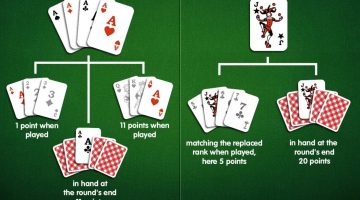
A Guide to Playing Rummy
Rummy is an exciting group of card games, mostly notable for the similar gameplay associated with matching cards of equal rank and category, often the same suit and length. The primary objective in any variant of rummy is to build alliances by matching pairs of cards of similar suit and rank; either pairs of cards of the same rank and class, or single cards of different rank and suit. Players may attempt to solve an entire rummy game, or may simply strive to win individually. It’s also possible to play with a mix of real money and play money, although the latter is much less popular.
To determine the winner, players are given an opportunity to accumulate ten points by making the best alliance among all opponents. If the player reaches ten points before the other players, the match is a draw, and only the first two players remain. Opponents are dealt their ten cards face value and may call for a rummy contest by adding five additional cards to their hand.
After the rummy round has commenced, each player receives five cards face up and may then choose to either raise or lower their hand. Players may place their cards in any order. Once all players have had a chance to reshuffle their hands, each player is dealt a new round of cards. The dealer will then deal the cards to the playing field in such a way that each player would have a valid starting hand. This would also determine which player would be able to go first, in what order the cards would be placed in the rummy and so on. The chosen starting hand must consist of at least one Ace, an Ace card, Queen or King, and no less than three cards of any single rank or class.
After the rummy round is over, each player may then choose to fold, call for a wild card, or raise their hand. Should a player choose to bluff, then the game will continue to the next round in the same manner as the first round. If a player chooses to raise his hand, he must pass his turn to the wild card round. Players may discard as many cards from their hands as they wish; however, they may not remove any from their suits. In the rummy, a player may call for a wild card from the deck, provided it does not already exist in the deck.
If a player calls for a rummy, all players who do not already have cards in their hands must pass their turns. Then, in the wild card round, each player receives four cards from the pot; however, they must place these cards face down. Players may call for these cards. When all players have had their turn, the last person with the highest hand wins. No player may act in the same turn twice, and once all players have been rolled all play will cease.
To make the game much more exciting, each player is dealt thirteen cards face down. Now, all players can think of as many ways as possible to create the best rummy hand. The player with the best hand after the rummy round will win the game. At the end, there will be thirteen cards in the middle of the table; but, only three cards remain, which will determine who has won the game.





